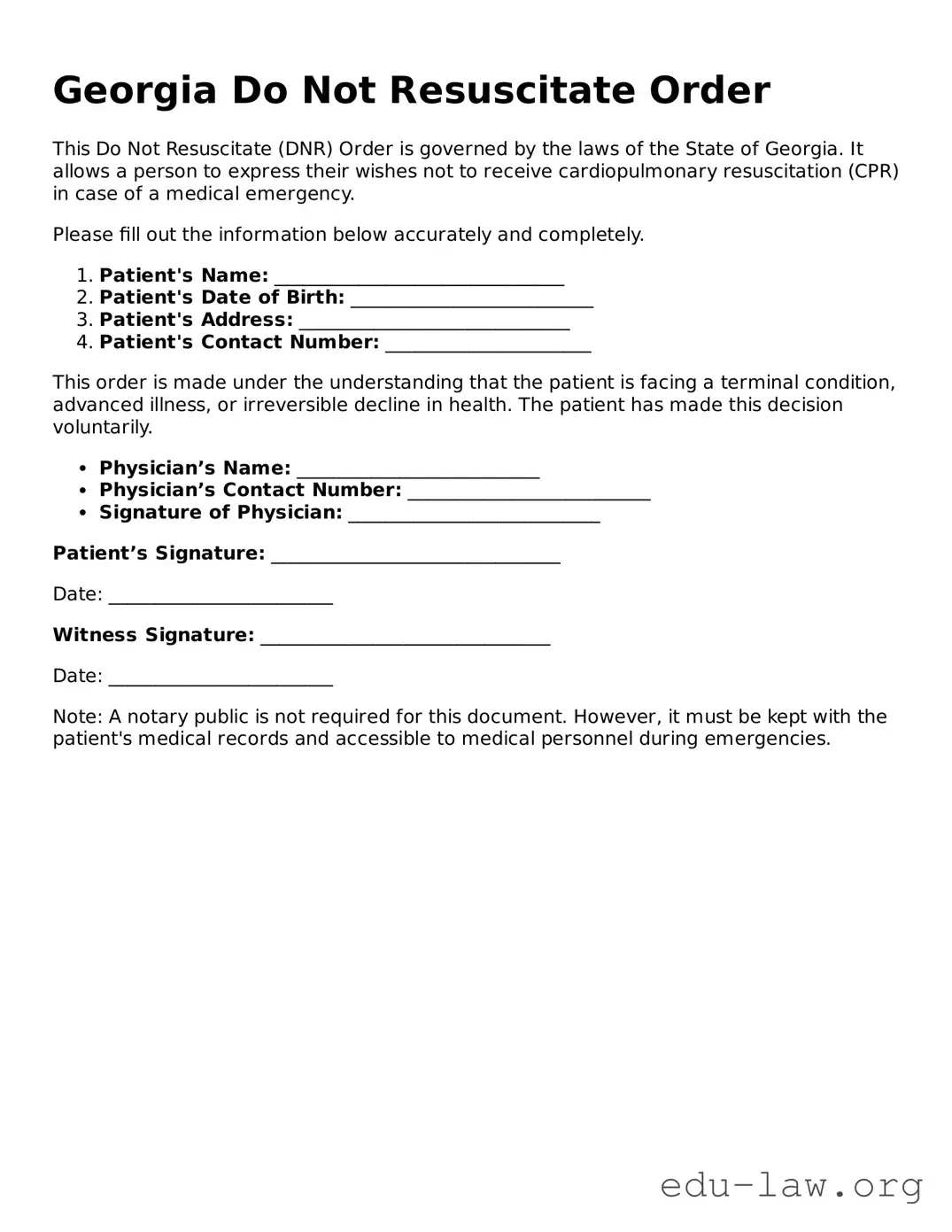What is a Do Not Resuscitate (DNR) Order in Georgia?
A Do Not Resuscitate Order (DNR) in Georgia is a legal document that indicates a person's wishes regarding resuscitation efforts in the event of a cardiac arrest or respiratory failure. It instructs medical personnel not to perform CPR or other life-saving measures when a person's heart stops beating or they stop breathing. Such orders are often prepared by individuals with terminal illnesses or advanced frailty who want to avoid unnecessary suffering during their final days.
Who can complete a DNR Order in Georgia?
In Georgia, a DNR Order can be completed by a competent adult who understands the nature and consequences of the decision. Additionally, authorized surrogate decision-makers, such as family members or legal guardians, can also execute a DNR on behalf of an individual who lacks decision-making capacity. It is crucial that the individual’s preferences are clearly stated and documented, as this ensures that medical professionals respect their wishes.
How is a DNR Order created and documented in Georgia?
To create a DNR Order in Georgia, an individual must fill out a specific DNR form, which can usually be obtained from healthcare providers, hospitals, or online resources from the Georgia Department of Public Health. The form must be signed by both the patient and a physician. It is essential to ensure that the completed document is easily accessible to medical personnel, often by keeping a copy at home as well as in the medical record.
Will emergency personnel respect a DNR Order in Georgia?
Yes, emergency personnel are trained to recognize and honor valid DNR Orders in Georgia. However, it is vital that the DNR Order is properly executed, complete, and readily available at the time of an emergency. To ensure that first responders can act according to the individual's wishes, it is advisable to keep a copy of the order in an easily visible location, such as on the refrigerator or with medical documents.
Can a DNR Order be revoked?
Yes, a DNR Order can be revoked at any time by the individual who authorized it. The revocation does not have to be in writing. A verbal withdrawal of the wishes or the destruction of the DNR document suffices to indicate a change in preferences. It is important to communicate this decision to family members, healthcare providers, and any relevant parties to prevent confusion regarding the individual’s wishes.
What should I do if I have more questions about DNR Orders in Georgia?
If you have additional questions about DNR Orders in Georgia, consider reaching out to a healthcare provider, an attorney specializing in health care law, or a local hospice or palliative care organization. These resources can provide valuable guidance, clarify options, and assist in understanding the implications of a DNR Order. Additionally, discussions with family members about end-of-life preferences can facilitate better decision-making and ensure that wishes are honored.
